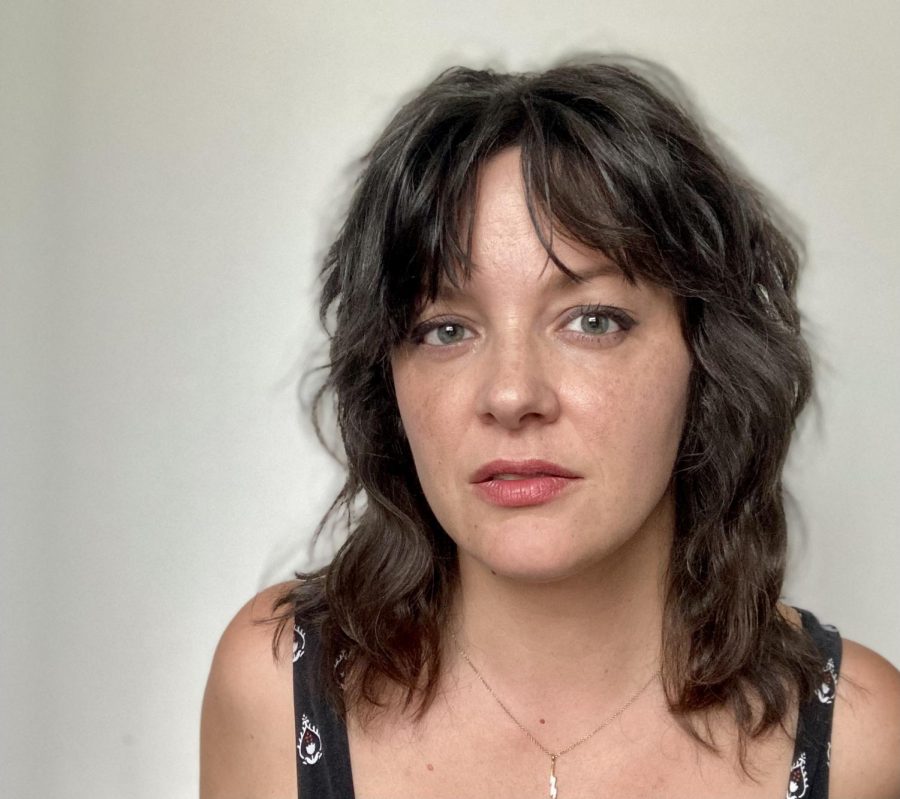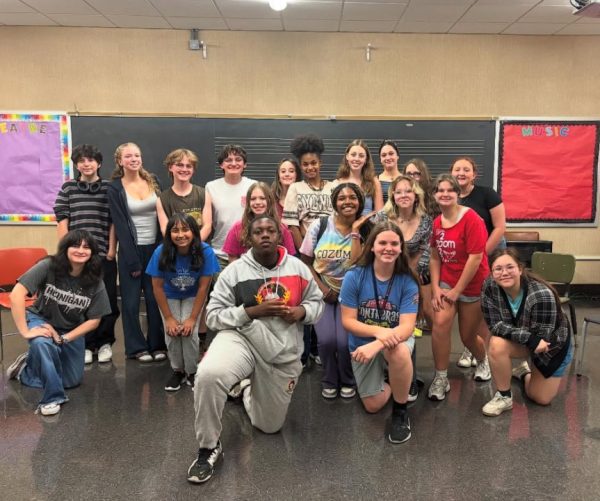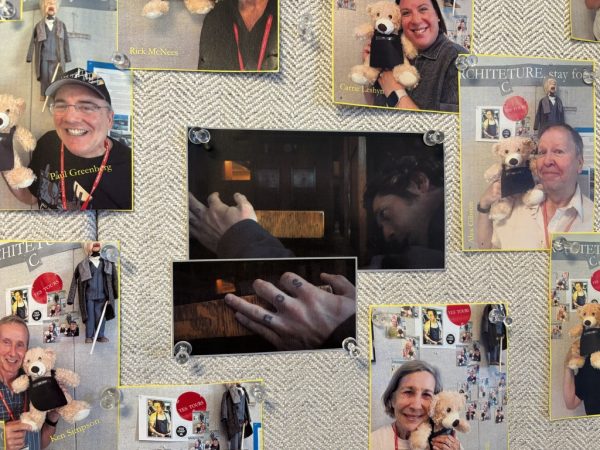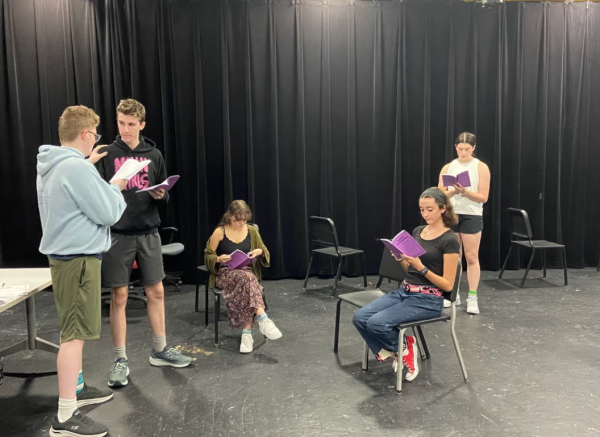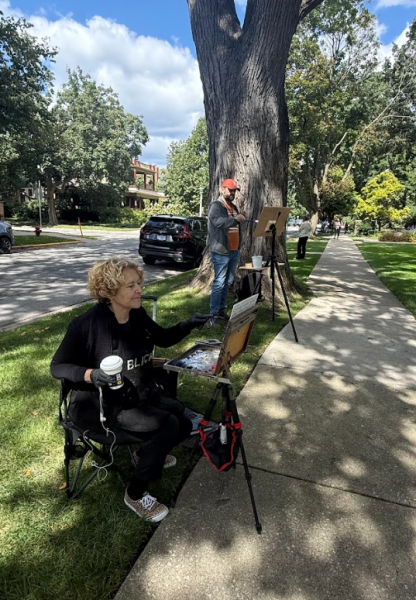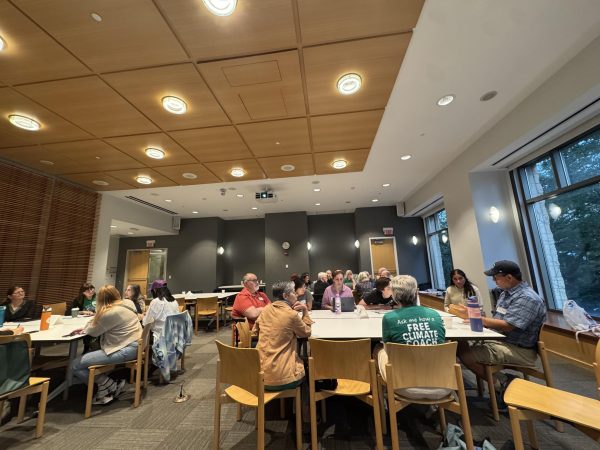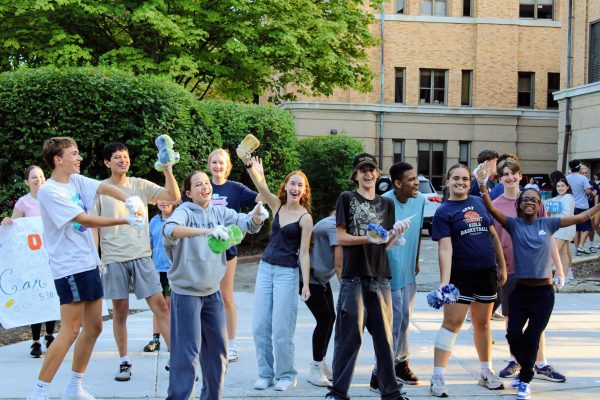OPRF English teacher set to publish novel
OPRF English teacher Laura Young
From an outsider’s perspective, books appear on shelves fully formed, and plots come to authors like magic. From a writer’s perspective, the writing process can be a years-long task, consisting of early mornings, frustrations, and writer’s block. Nobody knows this better than Laura Young, an English teacher at OPRF whose novel, “The Butcher,” is coming out in September 2022.
“The Butcher,” a neo-western horror novel about the woman in charge of an eye-for-an-eye world, stemmed from one conversation Young had with a friend in 2017.
“There had just been a murder,” she said. “My friend and I were talking about if that was your wife or mother or sister or whatever, wouldn’t you want an eye for an eye?”
This idea inspired the creation of her main character Lady Mae, a young woman who inherits her mother’s job as the “Butcher,” whose job is to punish criminals according to the wishes of the victims.
It took her two years to write the first draft, and another year of editing to make it “presentable.” Young says that to develop “The Butcher,” she “workshopped it with a writing teacher.” She then submitted it to a contest, it got noticed by an agent, and it “went from there.”
Her agent, James McGowan, said his agency picked up “The Butcher” because of Young’s “lyrical language” and “fascinating western-style worldbuilding.” “The Butcher” had enough depth and “tonal darkness” that it drew McGowan into the world and didn’t let go.
Young was also the writer in residence (WIR) for the Hemingway Foundation from 2019-2021.
Being a writer in residence “can mean many things,” said Keith Smith, the executive director for the Hemingway Foundation. In most writer-in-residence programs, “the writer actually lives in or has an office at the location.”
However, because The Hemingway Foundation is located in a museum, the WIR can not actually live there, but “has a designated office for them to work at as they please.”
The Hemingway Foundation selected Young because of her experience writing and her participation in workshops. “She had a wonderful background including the renowned Iowa Writers Workshop,” Smith says. He said Young had “published works in various magazines and a new project to work on.” That new project ended up being “The Butcher.”
Writing, Young says, isn’t always typing furiously on a laptop or scribbling in a notebook. Young describes the process as “long and arduous,” with frequent bouts of writer’s block.
“Everyone thinks that writer’s block is sitting down to type, and not being able to think of something,” she said. Most of the time, she says writer’s block is procrastinating, writing something down, and then hating it. Young beats it by writing when she doesn’t feel like doing so, which “makes it easier to write the following day.” If she doesn’t do it, it’s hard to get started again.
“I get up at about five o’clock every morning and I write for about an hour,” Young said.
Young says that writers have to be humble, and not let their egos get in the way of criticism. “It takes a lot of (humility) to say yes, this could be better,” she says. “Be willing to take feedback and advice.” There are also moments, Young said, “Once in a while” when “I get it right. It makes it all worth it,” she said.
That’s why she spent four and a half years writing “The Butcher,” around her teaching job and kids.
“Writing brings me joy,” she says. Writing lets Young “be creative just for myself.” When she writes, she doesn’t feel the pressure to create anything specific.
Writing is “very helpful and therapeutic to me.”
Ultimately, Young says all the hard work is worth it. “I hope,” she says, “I can entertain someone with my stories.”

